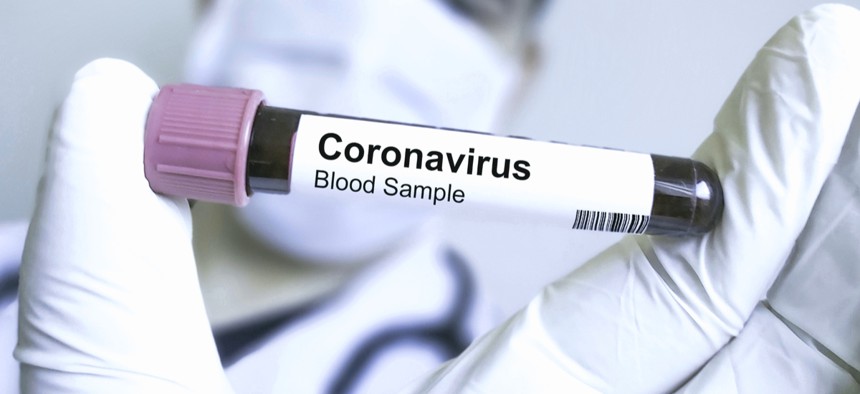Coronavirus Cases to Jump with Increase in Testing Capacity

Soni's/Shutterstock.com
Health officials said Monday that as testing shifts from public labs to commercial labs the number of coronavirus cases will increase. The insufficient testing capability has been a major criticism of the disease response.
Public officials warned Monday that they expect to see a jump in the number of coronavirus cases reported as commercial tests become more widely available in coming weeks.
Seventy-eight state and public health labs across the country have the current capacity to test up to 75,000 people for coronavirus, said Nancy Messonnier, director, of the Center for Disease Control and Prevention’s National Center for Immunization and Respiratory Diseases.
In the United States, health officials have identified upwards of 600 cases of coronavirus and linked 22 deaths to the outbreak as of Monday.
Maryland Governor Larry Hogan, who serves as president of the National Governors Association, said federal officials stressed during a Monday briefing at the White House that the numbers will continue to rise as testing becomes more readily available.
“With the expanded testing we should expect to see higher numbers,” he said during a press conference held in Annapolis. “This is spreading, it is going to shift from containment to trying to deal with the situation on the ground.”
The CDC has faced criticism over its initial testing capabilities and its ability to provide data on the number of people tested for coronavirus. Rather than initially using World Health Organization test guidelines, the CDC designed a flawed test for coronavirus which took weeks to sort out. There is currently no agency tracking the number of people tested for coronavirus in state, local, federal and private labs.
Testing by private sector labs was expected to expand Monday with the addition of tests by Quest Diagnostics.
“The number of commercially available tests is much larger than that and our expectation within the next couple weeks as more commercial entities come on board is that the majority of available testing will actually be from the commercial sector,” Messonnier said.
Although testing kits will be more widely available in the coming weeks, Messonnier said states will still have different capacities to test. That means they likely will have different policies about who should be tested.
In Maryland, Hogan announced that lawmakers had approved emergency legislation that would allow the state to transfer up to $50 million from rainy day funds to be used for response to the coronavirus outbreak. The state had five confirmed cases as of Monday, all of which have been traced to overseas travel, he said.
In preparation for the possibility the outbreak worsens and begins to spread in the state, Hogan said he is cancelling all state employee travel outside Maryland and directing state government employees to prepare for the possibility of a period of mandatory telework.
“All of us at the federal, state and local level are working together,” Hogan said. “We are continuing to hope for the best while we are also actively preparing for the worst.”
Symptoms of coronavirus include fever, cough, and difficulty breathing. The virus can spread between people who are within 6 feet of one another, and when an infected person spreads respiratory droplets through coughing or sneezing, the CDC said.
NEXT STORY: Agencies Warn of Coronavirus-Related Scams





